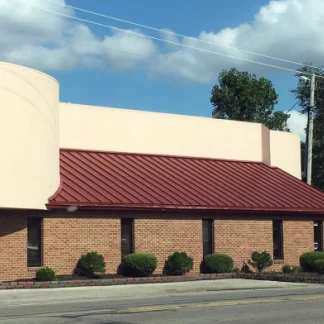VA Central Ohio Healthcare System - Grove City
VA Central Ohio Healthcare System - Grove City is a clinic located in Newark, OH...
Volunteers of America is a non-profit rehab located in Columbus, Ohio. Volunteers of America specializes in the treatment of alcoholism, drug addiction, dual diagnosis, mental health and substance abuse, and opioid addiction.
Contact us for more information: (614) 849-0145

Connect with Volunteers of America by calling their admissions team directly.
(614) 849-0145 Website Get DirectionsThe Commission on Accreditation of Rehabilitation Facilities (CARF) is a non-profit organization that specifically accredits rehab organizations. Founded in 1966, CARF's, mission is to help service providers like rehab facilities maintain high standards of care.
CARF Accreditation: Yes Accreditation Number: 255636
Group therapy is any therapeutic work that happens in a group (not one-on-one). There are a number of different group therapy modalities, including support groups, experiential therapy, psycho-education, and more. Group therapy involves treatment as well as processing interaction between group members.
In individual therapy, a patient meets one-on-one with a trained psychologist or counselor. Therapy is a pivotal part of effective substance abuse treatment, as it often covers root causes of addiction, including challenges faced by the patient in their social, family, and work/school life.
In individual therapy, a patient meets one-on-one with a trained psychologist or counselor. Therapy is a pivotal part of effective substance abuse treatment, as it often covers root causes of addiction, including challenges faced by the patient in their social, family, and work/school life.
VA Central Ohio Healthcare System - Grove City is a clinic located in Newark, OH...
AIDS Task Force Positive Solutions is a private rehab located in Columbus, Ohio....
Ohio Hospital for Psychiatry offers inpatient and outpatient treatment for indiv...
MedMark Treatment Centers is a private rehab located in Columbus, Ohio. MedMark ...